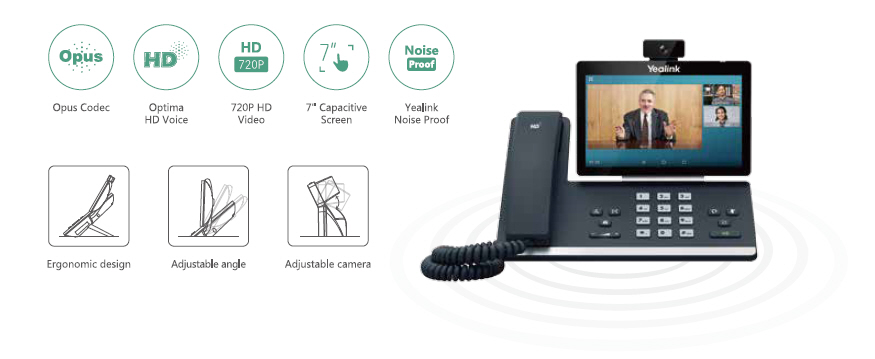Introduction
In the fast-paced world of business, effective communication is paramount. For large enterprises, especially those with extensive customer support teams, the tools they utilize can make or break their customer interactions. Enter VoIP phone services—an innovative solution that has transformed how companies communicate with customers. This article delves into how VoIP VoIP Phone Service Los Angeles https://soundcurve.com/voip-phone-service-encino-ca/ https://soundcurve.com/about-us/ https://soundcurve.com/contact-us/ phone service is indeed a game changer for customer support teams in large enterprises.
VoIP Phone Service: A Game Changer for Customer Support Teams in Large Enterprises
VoIP (Voice over Internet Protocol) phone service leverages internet connectivity to facilitate voice communications, offering a host of advantages over traditional telephone systems. For large enterprises with sprawling customer support operations, adopting VoIP technology can lead to increased efficiency, cost savings, and improved customer satisfaction.
Understanding VoIP Technology
What Is VoIP?
VoIP technology converts voice signals into digital data packets and transmits them over the internet. This allows calls to be made without relying on traditional landlines. Essentially, it harnesses the power of the internet, enabling seamless communication across vast distances.

How Does It Work?
The core functionality of VoIP revolves around packet-switched networks. Unlike circuit-switched networks used by traditional phones that create a dedicated connection for each call, VoIP sends voice data in smaller packets that navigate through multiple paths before reaching their destination. This not only optimizes bandwidth usage but also enhances the flexibility of communication.

Benefits of VoIP Phone Service for Customer Support Teams
Cost Efficiency
One of the most compelling reasons businesses are switching to VoIP is cost savings. With traditional phone services often incurring hefty installation and maintenance fees, VoIP reduces these costs significantly.
- Lower Call Rates: Long-distance and international calls are much cheaper with VoIP. Reduced Infrastructure Costs: Companies can eliminate the need for separate telephone lines and equipment.
Enhanced Features
VoIP phone services come packed with features that can significantly improve customer interactions:
- Call Forwarding: Redirect calls from one number to another seamlessly. Voicemail to Email: Receive voicemails directly in your inbox for easy access. Conference Calling: Host group calls without needing specialized equipment.
Scalability
Large enterprises often experience growth spurts. Traditional telephony systems may struggle to keep up with additional lines and features required during such periods. In contrast, VoIP systems are highly scalable, allowing organizations to add or remove lines as needed without hassle.
Improved Communication Quality
High Definition Voice Quality
One of the highlights of modern VoIP technology is its ability to deliver high-definition voice quality. With advancements in bandwidth management and echo cancellation technologies, customers enjoy clearer conversations without disruptions.
Real-Time Analytics
VoIP solutions often come equipped with real-time analytics tools that allow support teams to monitor call metrics instantly. This feature helps identify patterns within customer interactions and areas requiring improvement.
Integrating CRM Systems with VoIP
Streamlining Customer Interactions
Integration between CRM (Customer Relationship Management) systems and VoIP services can streamline workflows significantly for customer support teams:
- Automatic Call Logging: Calls can be automatically logged into the CRM system. Customer Profiles Displayed During Calls: Agents have instant access to relevant data about customers when they receive calls.
This integration not only saves time but also enhances the quality of service provided to customers.
Challenges Faced by Large Enterprises Using Traditional Phone Systems
Limited Flexibility
Traditional phone systems often lack flexibility, making it difficult for companies to adapt quickly to changing needs or crises such as remote work scenarios like those seen during the COVID-19 pandemic.
High Maintenance Costs
Maintaining traditional infrastructure requires significant resources—both financial and human—which could instead be allocated toward innovative solutions or training programs.
Transitioning to a VoIP Phone Service
Steps for Implementation
Transitioning from traditional phone systems to a VoIP solution isn't merely a plug-and-play operation; it requires adequate planning:
Assess Current Needs: Evaluate current communication needs based on team size and call volume. Choose a Reliable Provider: Research various providers focusing on reliability, features offered, and user reviews. Plan for Training: Ensure employees are trained adequately on using new software or hardware associated with the new system.Security Considerations in VoIP Services
Understanding Vulnerabilities
While leveraging internet-based communications brings many benefits, it also introduces potential security risks such as hacking attempts or eavesdropping on sensitive conversations.
Best Practices for Security
To mitigate these risks:
- Implement strong passwords for all accounts. Use encryption measures while transmitting data. Regularly update software and firmware associated with the service provider's platform.
Customer Experience Enhancement Through VoIP
Personalized Interactions
The integration of advanced technologies enables more personalized service delivery:
- Tailored marketing campaigns based on previous interactions recorded via CRM systems allow agents to approach customers more effectively.
Quick Response Times
With features like automatic call distribution (ACD), calls can be routed quickly based on agent availability or expertise—significantly reducing wait times for customers seeking assistance.
Future Trends in VoIP Technology
Artificial Intelligence Integration
As AI continues evolving rapidly across industries, its application within VoIP technologies is promising:
AI-driven chatbots could handle simple inquiries initially before routing complex issues directly to human agents. Predictive analytics could help forecast peak calling times allowing better staffing decisions.FAQ Section
What is a VoIP Phone Service?- A Voice over Internet Protocol (VoIP) phone service allows users to make voice calls using an internet connection instead of traditional telephone lines.
- By eliminating expensive landline fees and offering cheaper international rates along with reduced infrastructure costs associated with maintaining physical telephony equipment.
- Yes! Many modern phones are compatible with VoIP services; you may only need adapters depending on your setup.
- With proper planning and execution by your IT team or provider specialists, downtime can usually be minimized significantly during transition phases from traditional systems to newer solutions like voip services .
5 . Are there mobile app options available?
- Absolutely! Most reputable providers offer mobile applications enabling users access their office numbers anywhere they have an internet connection!
6 . What happens if my internet goes down?
- If your internet connection fails , you will lose access until it’s restored ; however , many organizations implement backup internet connections ensuring uninterrupted voice communications even during outages .
Conclusion
In summary, adopting a VoIp Phone Service represents not just an upgrade but rather a fundamental transformation in how large enterprises communicate internally and externally alike . The numerous advantages—from cost savings , improved quality & scalability , enhanced security measures ,to future-proofing against market changes —make this technology essential today more than ever before . Thus , moving forward towards integrating robust voip solutions should become priority number one across all departments handling customer relations !
